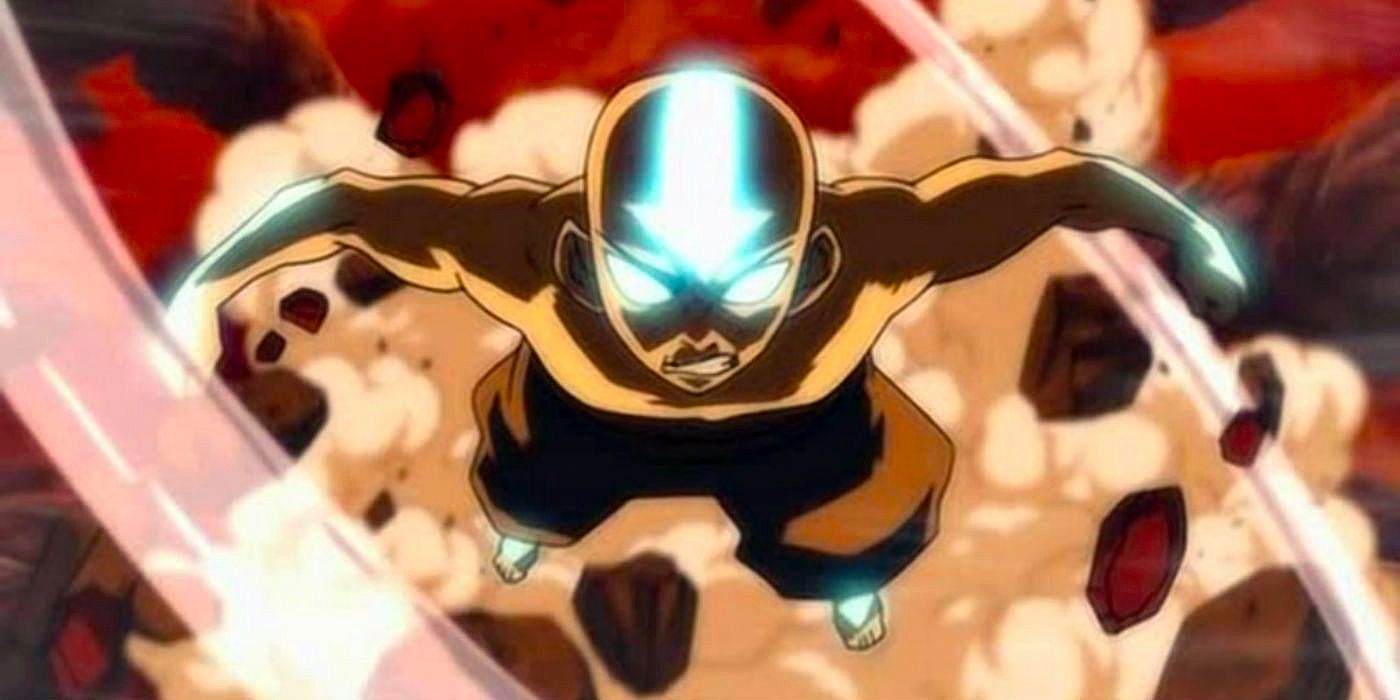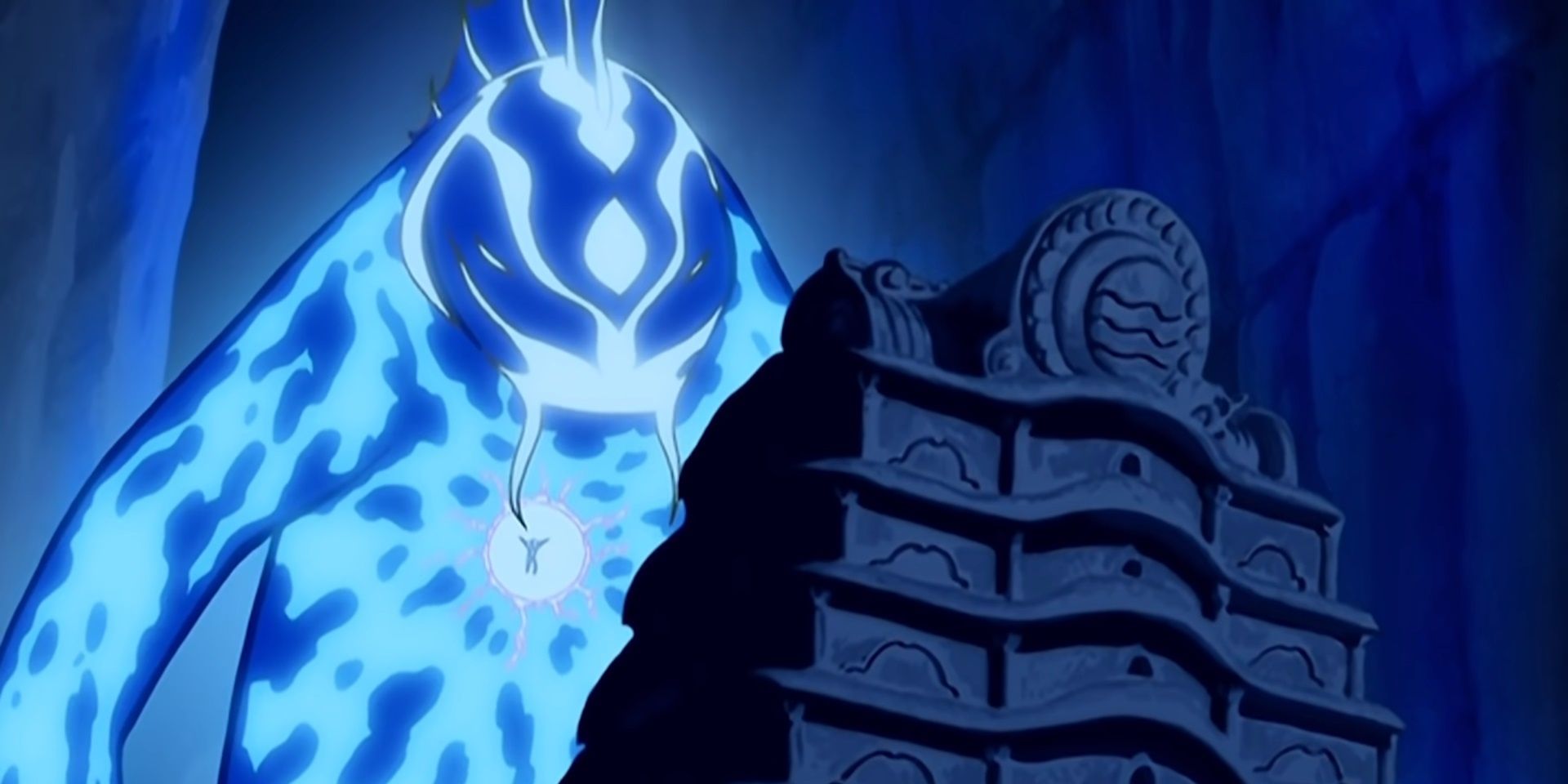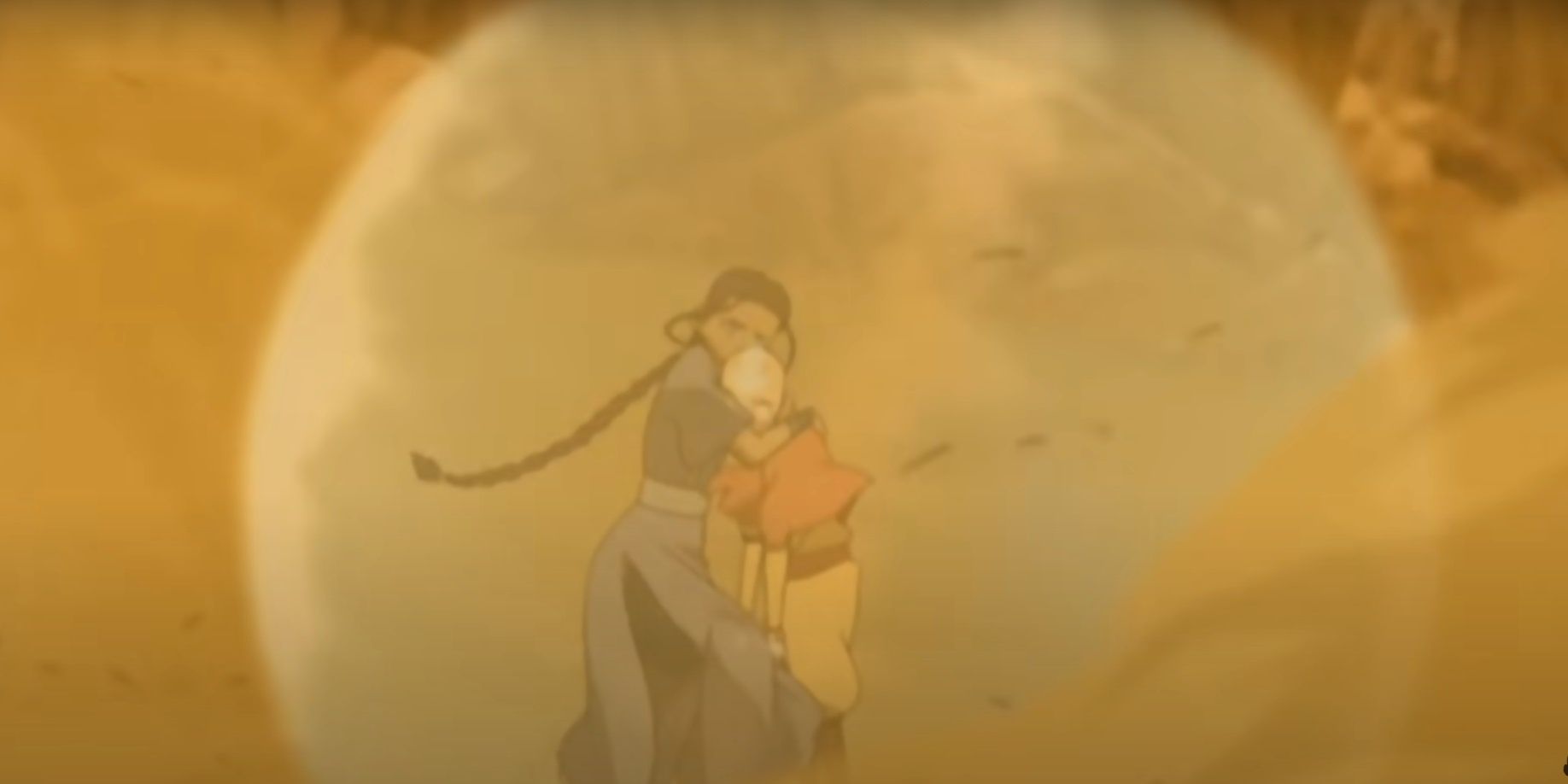
Aang is the poster boy for pacifist protagonists in Avatar: The Last Airbender, and the entire series builds toward a climax where he is faced with the decision of whether or not it is ever permissible to take a life. He periodically pushes other characters away from violence, often fights more through evasion than directly attacking and treats his responsibility as the last airbender seriously as he tries to preserve their tradition of pacifism. And yet, at various points, he seemingly fails. Aang certainly uses violence against others throughout the series, but does this ever cross the line into outright killing?

At the outset, it's important to keep in mind the restrictions of the original series. Although the show frequently discusses death and even features Monk Gyatso's skeleton as early as the third episode, it often plays coy with depicting lethality on screen. Even when Jet is (probably) killed in the second season from an earthbending attack released by Long Feng, the camera cuts away, and later the series later explicitly admits how ambiguous the death was. This leaves any instance where Aang may have killed out of necessity to the imagination, as fans are forced to consider whether or not these attacks could have been survived.
The most notable example occurs during the finale of the first season, "The Siege of the North," when Aang enters the Avatar State and repels the entirety of the Fire Nation fleet. He sweeps away masses of water with a gesture, slices apart towering structures and condemns the Fire Nation soldiers to the icy waters. Obviously, none of the soldiers die on screen, but as devastating as the attacks are, it's not out of the question that some of the enemy died as a result. Conversely, the series earlier showed how firebenders can warm themselves in the same icy waters, indicating the soldiers may have survived, but more importantly, Aang's possession by the Ocean Spirit at the time could reasonably remove him from agency in the moment.
That same Ocean Spirit even leaves Aang's body and immediately pulls Admiral Zhao into the Spirit World, essentially killing him as it condemns him to an eternity in the Fog of Lost Souls. This moment later haunts Aang, and he is hesitant to enter the Avatar State for fear of losing such control, but this is key in identifying whether Aang is truly responsible for his actions. Prior to mastering the Avatar State, it's possible to say that any deaths Aang inflicts are unintentional, as it's his past lives that take control of his actions. To more definitively identify the hypocrisy of his pacifism, it would be more effective to point to instances outside the Avatar State.
And there are a few. In "The Northern Air Temple," he uses an Air Scooter to cause an avalanche that washes several Fire Nation soldiers down a mountain. Similar to "Siege of the North," this begs the question of whether or not they could have survived. While it seems silly to imply anyone could survive a major avalanche, it's important to remember just how sturdy humans in Avatar can be. They take boulders shattering against them frequently, enduring damage that would paste real-world people, so with a little bit of generosity, it's possible to conclude that the Fire Nation soldiers could have survived the avalanche. However, there's one instance where Aang definitively does take a life: in "The Desert."

Grief-stricken at the loss of Appa and desperate in the harsh desert climbs, Aang strikes out at a buzzard-wasp he pursues that previously attacked him and his friends. He flies after the creature and sends out a slice of air that passes a considerable distance away, felling the wasp on impact. Viewers who look closely enough can see the creature's head fall off in the distance. Aang decapitated it while it was running away, standing out as the most explicit example of Aang taking a life in the series.
To be sure, this is a moment that seems to deeply affect Aang thereafter, and he goes on to grow even further as a character from that point. His guilt over the moment may even feed into his increasingly firm stance against killing, culminating in a finale where he reuses to kill Ozai at multiple points during their fight. The fact that he struggles with his morals and ideals may make Aang all the more interesting as a character, but it's hard to deny that he is almost flawless in upholding his pacifism throughout the series.
0 Comments